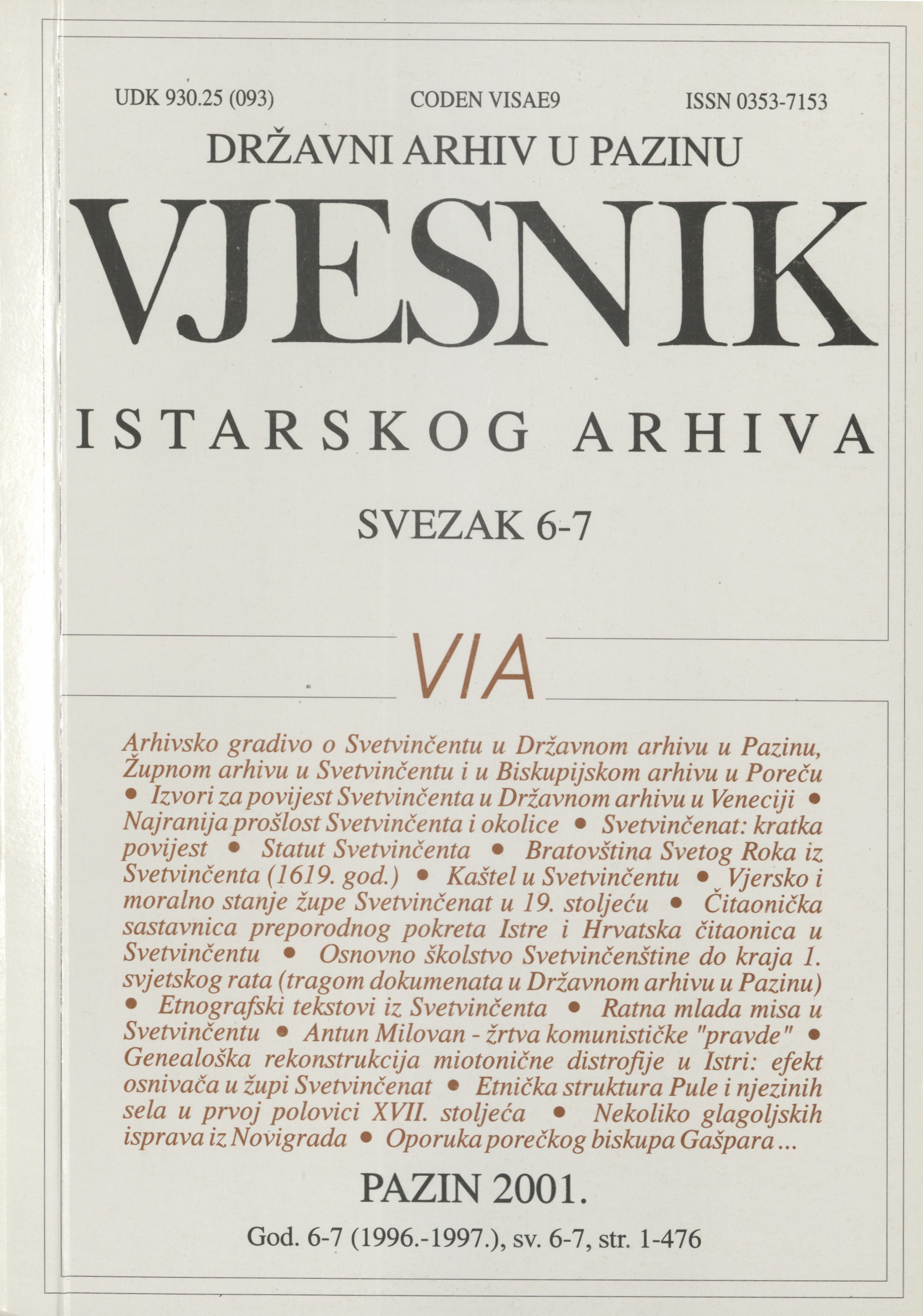The religious and moral situation in the Svetvinčenat parish in the 19th century
Abstract
The religious and moral situation in the Svetvincenat parish in the 19th century is described on the basis of documents from the parish archive in Svetvincenat and from the episcopal archive in Porec, as well as from notes and texts written by Antonio Facchinetti (1831 - 1867), who was parish priest in Svetvincenat for many a years. Svetvincenat was traditionally a Roman Catholic parish. Almost all parishioners generally took all sacraments. The religious life was tightly linked with the usual annual liturgical feasts and customs connected with them: Advent, Christmas, Epiphany, Lent, Easter, Assumption, Corpus Christi, etc. As it was also an agricultural and pastoral area, religion was also linked with the seasonal cycle of nature, e. g. the blessing of fields in spring etc. In the popular devotion, the Mother of God had an eminent position: many churches were dedicated to her, there were many feasts in her honour, and the rosary was an essential element. The faith was transmitted mainly in families, but also in the parish community. Prayers and various songs with historical or legendary facts on Christ, the Virgin Mary and saints were learnt by heart. In the second half of the 19th century Dobrila's prayer book Father, thy will be done circulated in the parish. But superstition was also present, and fortune-tellers were consulted. The main characteristics of everyday life in the parish of Svetvincenat were: hospitality towards everybody, straightforwardness in words and deeds, fidelity in matrimony and towards godfathers and matrimonial witnesses, loyalty in promises, diligence is a distinctive trait of mature persons, younger people and even children. Among negative features in the parish, there were revengefulness, theft, and - rarely - adultery and murder.
Downloads
Published
Issue
Section
License

This work is licensed under a Creative Commons Attribution-NonCommercial 4.0 International License.

